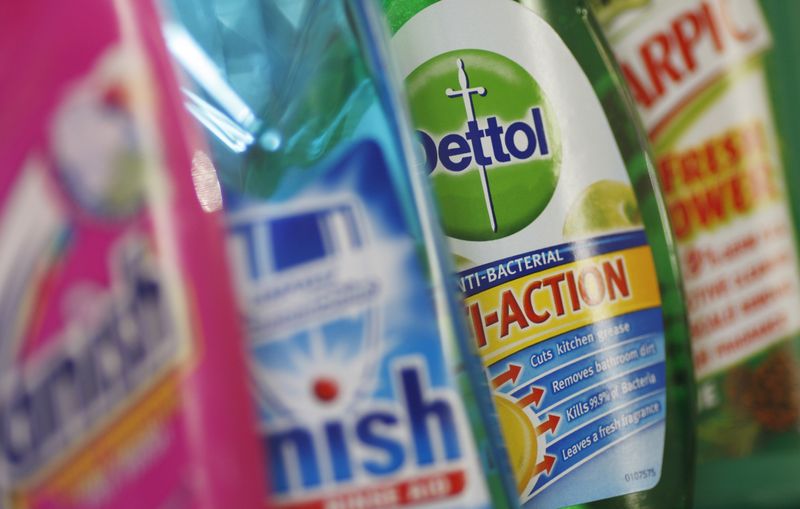Reckitt names Kris Licht as CEO, beats sales estimates
2023.04.26 03:56

© Reuters. FILE PHOTO: Products produced by Reckitt Benckiser; Vanish, Finish, Dettol and Harpic, are seen in London February 12, 2008. REUTERS/Stephen Hird
By Richa Naidu
LONDON (Reuters) -Reckitt Benckiser has named company insider Kris Licht as CEO designate to succeed Nicandro Durante, taking the helm by the end of the year after a transition period.
Licht, who has served as president of Reckitt’s health business and as chief customer officer since July 2020, will be appointed to the board as an executive director from June 1.
“Having played a pivotal role in both the transformation strategy and the significant turnaround of our Health GBU over the last three years, Kris is the right leader to take Reckitt on the next stage of its exciting journey,” Durante, a former BAT (LON:) chief executive, said.
“It was a very well-informed choice and the board had the luxury of time because I was here … that’s why the process took eight months.”
Durante will stay with Reckitt until December “to ensure a smooth transition”.
Neil Denman, a fund manager at Reckitt investor Sarasin & Partners, said: “I very much like the continuity of an internal appointment. You’re not getting an external CEO saying they’re going to come in and change things.”
The company, which makes Durex condoms and Lysol cleaning products, also reported like-for-like net revenue up 7.9% in the first quarter, beating analyst expectations of a 3.6% rise in consensus forecast provided by the company.
“A good set of results after what has been quite a choppy time for the company,” Denman said, referring to the CEO’s looming departure.
Reckitt, which also makes Nurofen tablets, cold remedy Lemsip and Dettol hygiene products, now expects like-for-like net revenue growth of 3-5% for the year after beating sales expectations for several quarters in a row, helped by price increases.
The consumer goods industry has increased prices to make up for about two years of rising raw materials prices and supply chain and energy costs, which began with the pandemic and was exacerbated by Russia’s invasion of Ukraine.
In some cases, manufacturers’ price increases have prompted shoppers to shift away from big brands towards retailers’ cheaper own-label products and investors have voiced concerns about the impact on sales volumes and margins if prices continue to rise.








